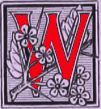
hen Henry Jekyll declares that "man is not truly one, but truly two," he is quick to add that his knowledge of human nature is actually incomplete, and that he guesses that "man will be ultimately know for a mere polity of multifarious, incongruous and independent denizens." Jekyll's vision of nature is thus, on the one hand, deeply dualistic; and, connected to this, his idea of science is built on separation and control, the trademarks of a positivist scientist. On the other hand, he suggests the existence of a wilder, more chaotic understanding of human nature than the one his science (and his biases) can grasp. If his dream of separating "the two natures" in himself, which he identifies as good and evil, morality and the body, has catastrophic results, would embracing this ill-defined, non-dualistic conception of human nature lead to better results? Rather than guiding his reader towards a simple solution, Stevenson ambiguously leaves his readers with the task of questioning their own conception(s) of nature and of the natural.
Such ambivalences about human nature are echoed in Stevenson's relations to Nature as the environment/natural world—traditionally conceived as separate from the human, civilization and culture in yet another questionable duality. One might recall an 1890 letter to Sidney Colvin, detailing Stevenson's attempt at containing the "unconcealed vitality of [the] vegetables" that were infesting his property in Samoa—an experience that world would haunt him with images of the "silent battle, murder and slow death of the contending forest." Does a passage like this represent a heroic (and to an extent successful) attempt to control nature? Or does it suggest the fundamental mistake of perceiving humanity and nature as separate, already intimating the necessity of transgressing that boundary? which attitudes towards nature does Stevenson ultimately embrace, if any?
These are just two examples of the ways in which 'nature' becomes a site of investigation in Stevenson's work. This conference aims to explore the concept of nature/natural in Stevenson's work, broadly understood as to intersect with several of Stevenson's intellectual, ethical and artistic engagements: reflections on literary criticism/style, conceptions of gender and sexuality, visions of science, anthropological and psychological notions of the human, and ecological/ecocritical considerations. It suggests the possibility that the Stevensonian 'natural' may also, as a matter of course, evoke its other—the 'unnatural'—either to uphold the boundary between the two or, perhaps more intriguingly, to cross it. Connected to this, the conference aims to investigate Stevenson both as a writer of dichotomies/dualisms and their wild transgressions.
Topics include but are not limited to:
- Theoretical reflections on the idea/concept of nature, the natural, and the unnatural with reference to Stevenson's fiction and nonfiction
- Conceptions/visions of the environment, the nonhuman (including animals and plants) and ecology in Stevenson
- Weird, eerie and unnatural landscapes
- Stevenson as writer of binaries/dichotomies, Stevenson beyond binaries/dichotomies
- Ecocritical, posthuman, neo-materialist readings of Stevenson
- Stevenson and science (positivist or otherwise)
- Stevenson, Victorian psychology, and theories on double or "multiplex personality"
- Stevenson and queerness, or Stevenson as queering genre/gender and literary style; queer ecologies in/and Stevenson
- Normative conceptions of kinship (and their overcoming); queer kinship
- Fear of/embracing miscegenation
- The natural/artificial dichotomy in Stevenson, and/or its overcoming
- Stevenson and the body/mind duality, and/or its overcoming
- Transcorporeality in Stevenson
- Ecophilia and ecophobia in Stevenson
Proposals (200-300 words) for 20 minute papers are warmly invited and should be sent to one of the conference organisers: Alessandro Cabiati or Lucio De Capitani by November 30, 2025. Please include your email address, institutional affiliation (if any), and a short bio (100 words). If you have any questions, please contact the organisers.
Created 31 July 2025
Last modified 1 August 2025